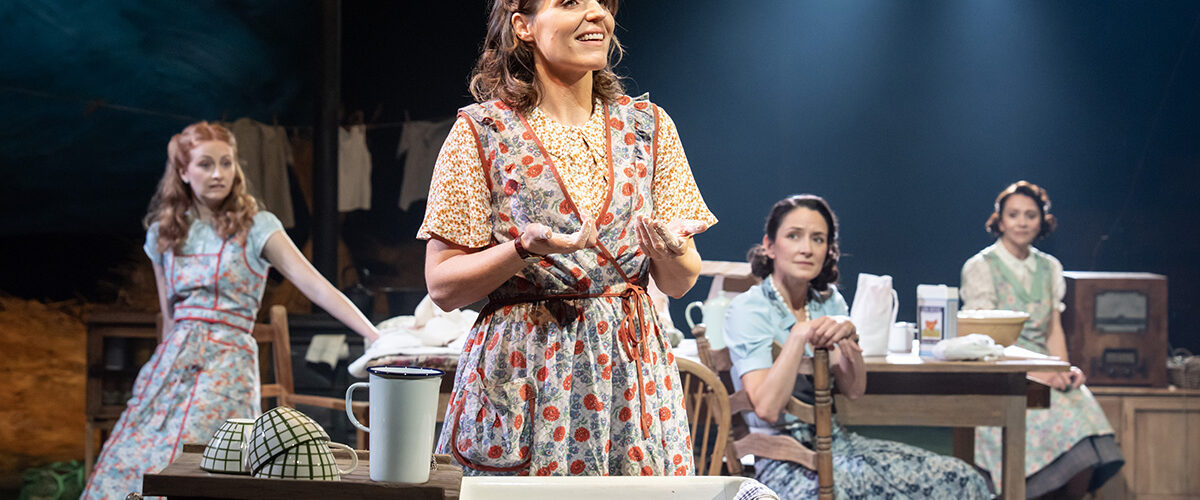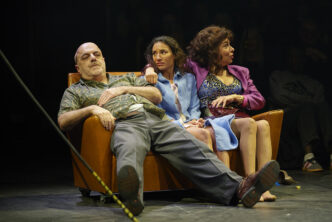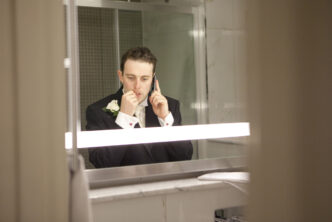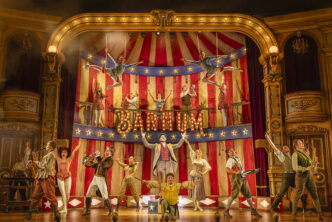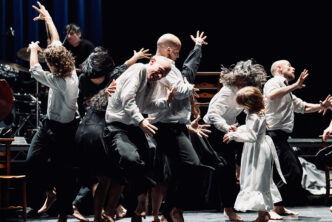A huge bodhran hangs over the set of Dancing at Lughnasa like some leaden sky settling down on the inhabitants of this village in Donegal. Together with the fiddle it represents freedom from the cares of everyday life, a chance to dance and escape.
For sisters Christina, Agnes, Rose and Margaret another kind of freedom comes with their treasured radio, when it works that is. They daydream their way through their chores listening to crooners transmitted as if from another world. For this is 1930s Ireland where neighbours and the church provide a corrective morality.
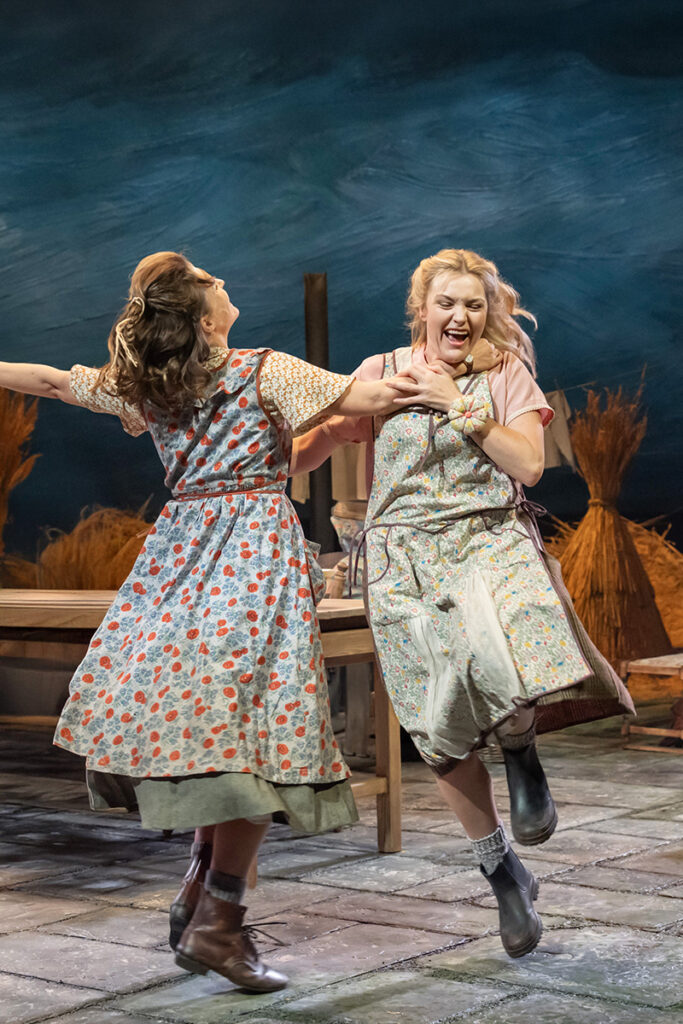
The men are either absent or have been for some time. Wastrel Gerry Evans has fathered a ‘love child’ with Rose and only makes occasional trips back to the family home, riding in on a promise and talk of jobs he can’t hold down. Uncle Jack is the more complex character, back from missionary work in Africa and bringing with him strange ideas of what it means to live in a land where worship of gods signals freedom rather than restriction.
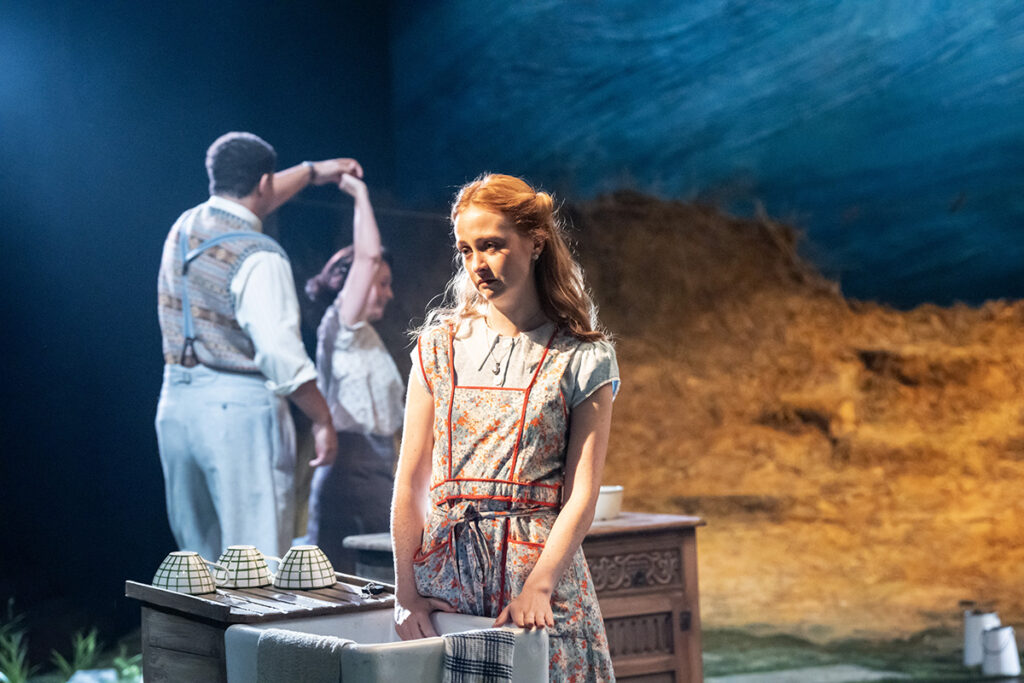
The brilliance of Friel’s elegiac play lies in capturing the conflict between human desire and the dead hand of convention and adherence to Christian values. Even schoolmistress Kate (Natalie Radmall-Quirke), the main breadwinner in the house and a rod of rectitude, cannot contain herself when the others break into dance in a spontaneous outburst of primeval joy in their kitchen. It is one of the highlights of the evening, a moment when the sisters’ longing for release suddenly erupts into fervid emotion.
Margaret (Siobhan O’Kelly) has only her Woodbines to console during long summer evenings when life is happening elsewhere, Rose (a wonderful performance from Rachel O’Connell) lives off the promise of her beau who takes her out on his boat despite dire warnings from the others. Chris (Martha Dunlea) is trapped by a child and circumstance, while Agnes (Laura Pyper) knits away in a corner making gloves to sell to the neighbours in Ballybeg and fearing the coming of the industrial revolution which will demolish her cottage industry.
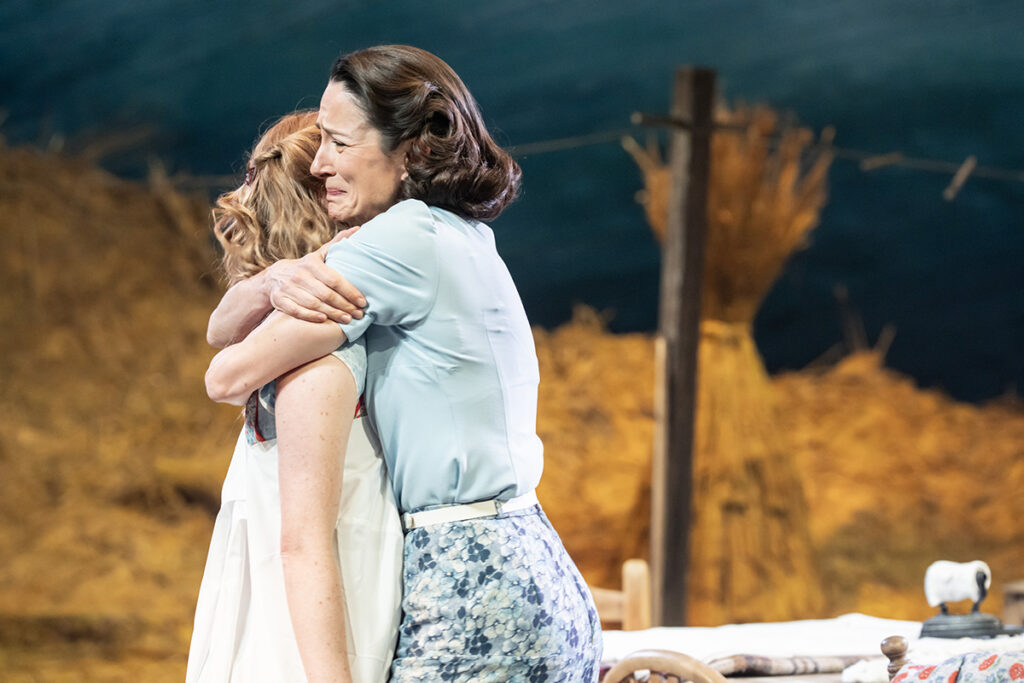
But it is Kate and Jack (Frank Laverty) who set the moral parameters of the play. He has been sent home under a cloud and appears at first to be suffering from memory loss, constantly grappling for words beyond his reach. But as he recovers and enchants the sisters with his tales of sacrifice and abandon in the pagan ceremonies in Uganda he now identifies with, Kate tries and fails to bring him back to Christian righteousness. He has witnessed a different way of ordering life and cannot go back.
If there’s a weakness in Friel’s play – given a dynamic production by director Elizabeth Newman – it is the use of the narrator which gets in the way of the drama and is a stagey device at the end where all loose ends are tied up. That aside, this is an exhilarating production of a classic play.
Dancing at Lughnasa is at The Royal Exchange Theatre, Manchester from 10 October to 8 November 2025.

